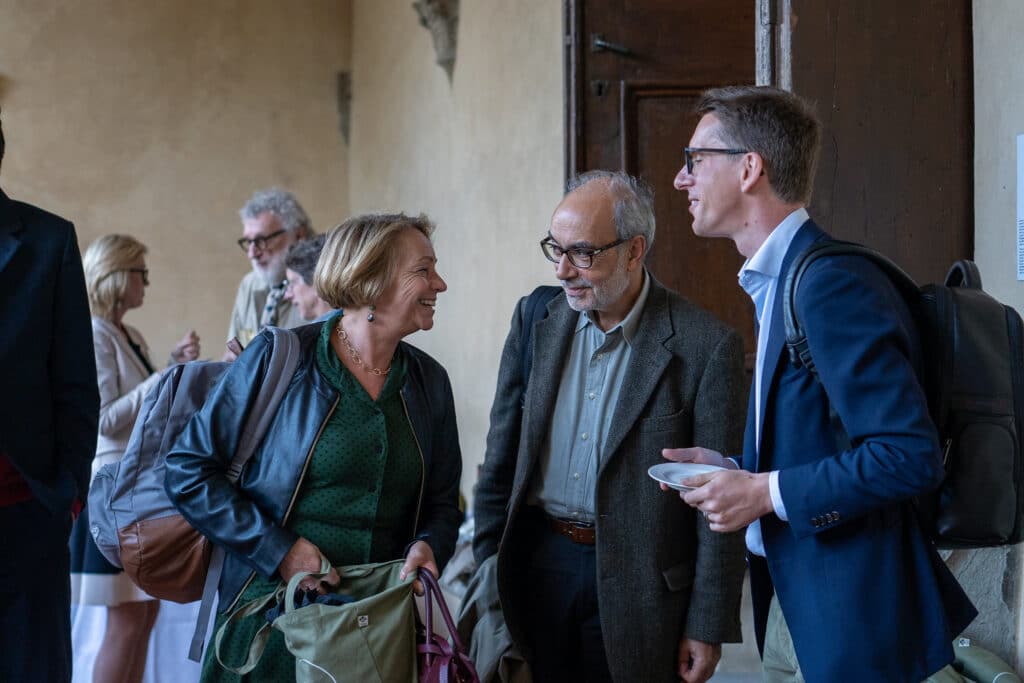Energy policy ideas for the next Commission
This is the first installment of the Topic of the Month: Research for policy impact - stories from the FSR
Research for policy impact
Impact is about developing ideas with rigorous research, engaging with the right people at the right time, and knowing how to communicate ideas.
In October 2023, we published a policy brief with “energy policy ideas for the next European Commission: from targets to investments”. In July 2024, Ursula Von der Leyen was reconfirmed as president of the European Commission. As expected, energy policy features prominently in her political guidelines. In September 2024, Mario Draghi published his “competitiveness strategy for Europe”, again energy policy is featured very prominently.
In the FSR brief, we identified the following priorities for the next European Commission: “make Member States more accountable to live up to their national investment potential for energy efficiency and renewable energy; promote multilateral cooperation (and solidarity) among Member States for network infrastructure, resource adequacy and flexibility; strengthen the management of our global dependencies; and reinforce the EU institutional setup for the governance of the energy sector. For each of these objectives, we also included ideas on how to do it.” We assumed that the EU would not come back on the main climate and energy targets for 2030 and 2050, but this was not guaranteed going into the elections.
The UVDL guidelines reconfirmed the decarbonization targets that have already been agreed upon for 2030 and 2050: “We must and will stay the course on the goals set out in the European Green Deal”, with “new momentum to complete the Single Market” and a “Clean Industrial Deal”.
The Clean Industrial Deal will be developed within 100 days. A 90% emission-reduction target for 2040 will be proposed for inclusion in the European Climate Law. The UVDL guidelines already announced how the Clean Industrial Deal will be implemented: A Industrial Decarbonisation Accelerator Act for energy-intensive sectors and clean-tech will be proposed. A new European Competitiveness Fund with simpler and faster implementation of “Important Projects of Common Interest” will also be introduced. The Draghi report gives us a first hint of what kind of measures might be included in this Clean Industrial Deal for the clean-tech industry, and for energy-intensive industry.
For the clean-tech industry, the Draghi report suggests that there are no taboos anymore, everything from import tariffs to controlling foreign direct investment, local content requirements and requirements to joint venture with local companies is on the table. The report states that some industries have already been lost. For these industries with low prices due to foreign subsidies and overcapacity, we could simply import technology. For other industries where it is not too late, we could put our heels in the sand.
For the energy-intensive industry, the Draghi report recognizes that the last electricity market reform already includes important tools, and encourages them to be used. Contracts for difference to accelerate the investment in renewables, and financial guarantees by public entities to make Power Purchase Agreements more accessible to more businesses and industrial consumers. The report also proposes to lower energy costs for end users with a maximum surcharge for energy bills across the EU. This could encompass taxes, levies, and network charges. The report also calls for more ambition for the expansion of networks to avoid that they become the bottleneck of the energy transition. If we want to limit the increase of network charges, while we increase the investments, we need finance networks from the general budget. The Draghi report does call for an increase in the Connecting Europe Facility, and the UVDL guidelines refer to a European Competitiveness Fund.
If some of the network investment costs are covered by a fund, the network tariffs do not reflect the total cost of the network, which can distort the behavior of network users. In normal circumstances, we would argue against this idea because we could end up with a network that is overused and more costly than necessary. However, we are not in normal circumstances, we need to invest proactively because network investments are slow and will be delivered too late if we wait until enough grid connection requests are made. If we invest proactively, the network tariffs for the existing network users increase in anticipation of new users due to the electrification of industry, transport, and heat. The increase in network tariffs can delay the arrival of new users who need to switch, which is the opposite of what we want. A fund to cover part of the costs or to transfer these costs to future users can therefore be justified.
Story of impact
Most of our policy briefs published by the Florence School of Regulation are about developing new ideas or packaging existing ideas in a way that makes it easier to engage with key decision-makers. The brief with ideas for the next Commission also served the additional purpose of renewing our research agenda. We thought about the future, tried to connect our existing research to this future, and also identified the gaps with new ideas for future research and new expertise we want to bring to our community to continue to be relevant.
Learn more
Listen to The FSR Policy Briefcase podcast series






